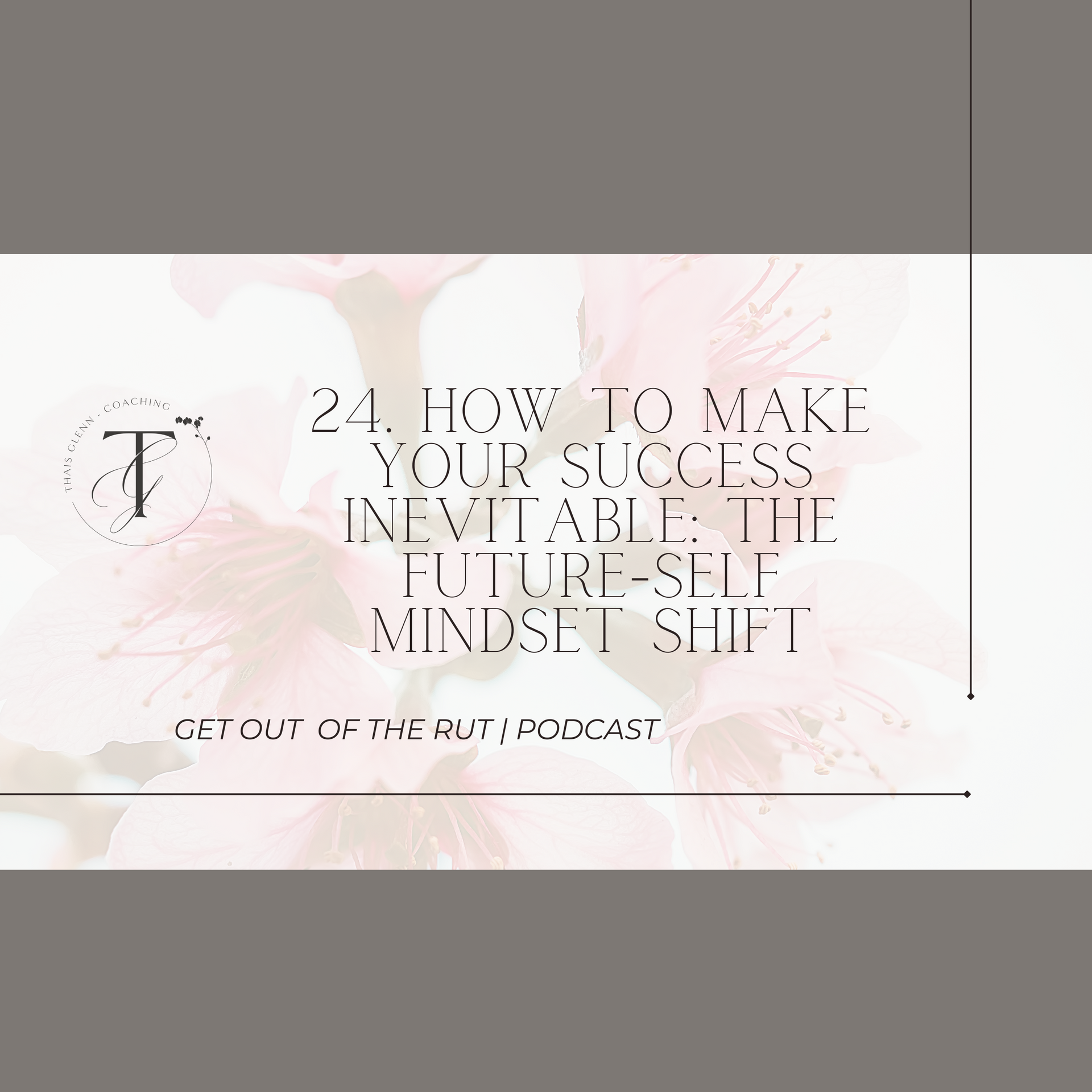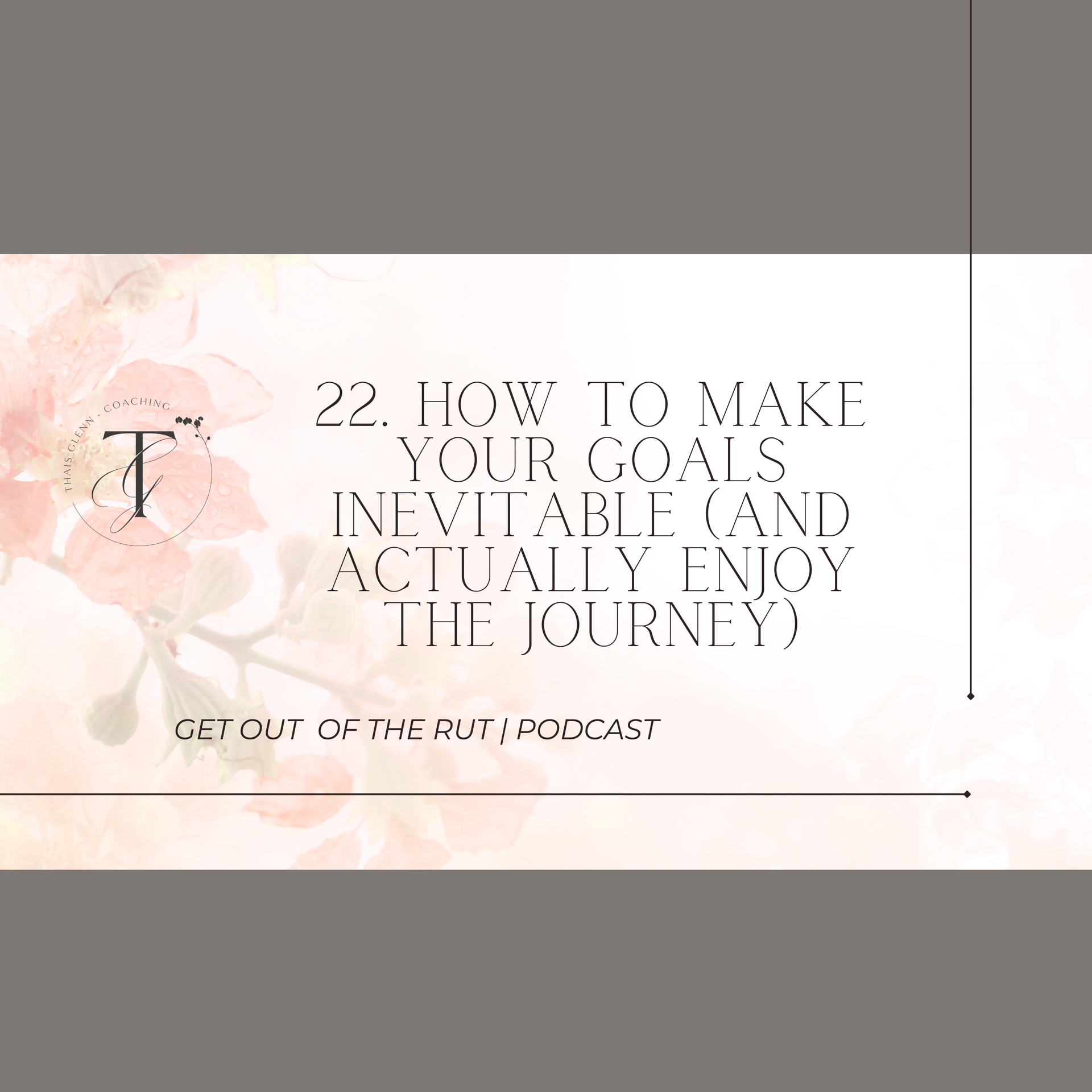Thais Glenn Coaching
Blog & Podcast
"'Just do it' may seem like great advice, but it's one of the worst motivators. It masks judgment, making you feel like you're not good enough because you haven't 'just done it.'
Pay attention to how these words affect your nervous system, and you'll realize they're rooted in criticism, not encouragement."

The Judgement in "Just Do It"
Just Do It? More Like Just Don't!
Today, we're diving into a piece of advice we've all heard a thousand times: "Just do it." It's the slogan that has motivated athletes worldwide, but when it comes to our personal growth and goals, is it really the best advice?
Spoiler alert: I think not!
Let's talk about why "just do it" might be the worst advice you can give or receive.
The Judgement Behind "Just Do It"
Have you ever noticed that "just do it" often comes with a side of judgment?
It’s like a sneaky little way of saying, "You're not doing this because you're lazy or not motivated enough." Ouch!
Instead of inspiring us, it often triggers a cascade of negative self-talk.
We all have those moments when we think, "Why can't I just lose weight?" or "Why can't I just start posting on social media?"
These thoughts aren't coming from a place of self-love.
They're born from judgment and unrealistic expectations.
Missing Out on the Journey
One of the biggest issues with "just do it" is that it skips over the process.
When you focus solely on the end goal, you miss the opportunity to become the person you want to be. The journey is where the magic happens. It's where you build your self-image and connect with your future self.
My "Just Do It" Moment
Let me share a little story.
Last week, during a business coaching session, my coach casually asked, "Why don't you just do it?"
My heart skipped a beat, and I felt a wave of judgment wash over me.
It was a stark reminder of why I get so upset when I hear those words, even from myself. It’s not about being lazy or unmotivated; it's about understanding the deeper reasons behind our actions—or lack thereof.
The Freeze Response
Here's a fun fact: When you hear "just do it," you’re more likely to freeze than feel motivated. This response is rooted in our body's trauma mechanism. Instead of jumping into action, we often feel stuck and overwhelmed.
Understanding the Root Cause
Labels like procrastination and perfectionism are often the scapegoats for our inaction. But these are just symptoms of deeper issues like fear and anxiety. By simply saying "just do it," we miss the chance to explore and address these root causes.
The Willpower Myth
Sure, willpower can push us through in the short term, but it's not a sustainable strategy. Relying solely on willpower can lead to burnout and resentment. Instead, we need to cultivate a genuine desire and shift our identity to align with our goals.
Embrace Empathy
A crucial element often missing in the "just do it" mentality is empathy. Being kind and understanding with ourselves creates a fertile ground for growth and achievement. When we replace harsh judgment with self-compassion, we open ourselves up to new possibilities.
What to Do Instead
1. Understand Your "Why"
Take a moment to explore why you're not taking action. Is it fear? Lack of desire? External pressure? Understanding your "why" gives you the power to make informed choices.
2. Check for Genuine Desire
Ask yourself if this goal truly aligns with your values and desires. Sometimes, we pursue goals that aren't even ours in the first place!
3. Weekly Self-Coaching [Evaluation] Sessions
Set aside an hour or two each week for a deep self-coaching session. Ask yourself three powerful questions:
- What worked?
- What didn’t work?
- What will I do differently?
4. Cultivate Empathy
Practice self-compassion daily. Treat yourself with the same kindness you would offer a dear friend. This creates a safe space for growth and transformation.
Final Thoughts
Remember, the journey is just as important as the destination.
By understanding the reasons behind our actions and cultivating self-empathy, we can create lasting change and truly enjoy the process. So next time you hear "just do it," take a step back and ask yourself, "Is this advice coming from a place of love and understanding?"
Thank you for being on this journey with me. I love you all and am so grateful for your support.
Until next time, keep growing, keep loving, and keep being kind to yourself.
With love,
Thais
Journaling Prompts:
01. Reflect on a time when someone told you to "just do it." How did it make you feel, and what was the outcome?
02. Identify a goal you’ve struggled to achieve. Write about the deeper reasons behind your resistance or procrastination.
03. Describe a moment when you felt judged for not taking action. How did this judgment impact your motivation and self-esteem?
04. Think of a time when you succeeded in achieving a goal. What supportive thoughts and actions helped you along the way?
05. Write a letter to yourself from a place of empathy and understanding, addressing your current struggles and offering kind advice.
06. Explore the difference between motivation from a place of self-compassion versus self-judgment. How do these approaches affect your progress?
07. List three goals you have and examine whether they truly align with your values and desires. Are any of these goals influenced by external pressures?
08. Describe a habit or behavior you want to change. What underlying fears or beliefs are preventing you from making this change?
09. Reflect on how you can cultivate more self-compassion in your daily life. What specific actions or thoughts can support this practice?
10. Imagine your future self who has achieved a significant goal. What steps and mindset shifts did you embrace to become that person?






